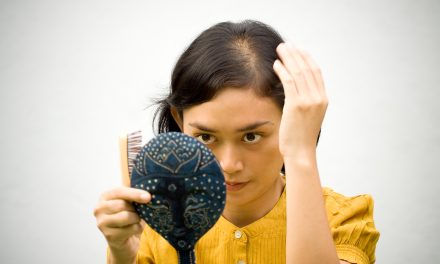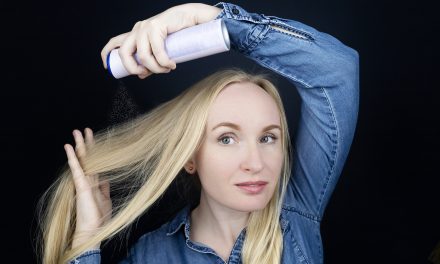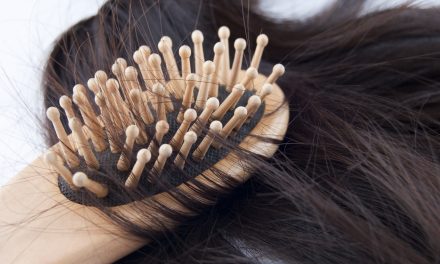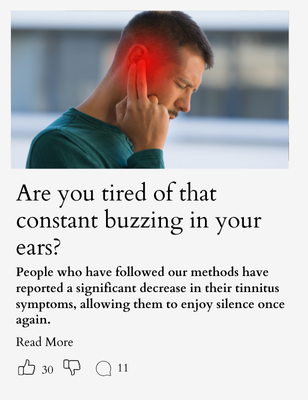Addressing hair loss effectively starts with choosing the right treatment.
Minoxidil and finasteride are two widely recommended treatments that can stimulate hair growth and slow hair loss. These solutions are often suggested by doctors for various types of hair loss.
Choosing a treatment depends on individual needs, so understanding the options is crucial.
While some people prefer medications, others explore natural remedies, including special vitamins and shampoos. The emotional and psychological impact of hair loss can influence these decisions.
It’s important to weigh the pros and cons of each approach and consult with a healthcare professional.
In recent years, research has shown promising trends in personalized treatments and new therapies. Keeping up with advancements can empower those experiencing hair loss to make informed decisions about their health.
This article aims to explore different therapies and their effectiveness.
Key Takeaways
- Minoxidil and finasteride are common treatments for hair loss.
- Different approaches include medications and natural options.
- Emerging research offers new hope for personalized treatments.
Understanding Hair Loss
Hair loss affects both men and women and can result from various causes. Genetics play a significant role, but lifestyle and medical conditions also contribute.
Different types of hair loss, like androgenetic alopecia and alopecia areata, have unique traits and treatments.
Hair Loss Causes and Genetics
Hair loss can result from a combination of genetics, medical conditions, and lifestyle factors. Genetics are a key factor, particularly in conditions like androgenetic alopecia, which is commonly known as male and female pattern hair loss. This type of hair loss is hereditary and often starts with thinning hair or receding hairlines.
Medical conditions such as thyroid diseases and iron deficiency can also lead to hair loss. Furthermore, autoimmune disorders like alopecia areata result in sudden, patchy hair loss. External factors like stress, diet, and hair treatments may contribute to the problem but are typically less impactful than genetics.
Types of Hair Loss
Hair loss manifests in different forms, each with distinct characteristics. Androgenetic alopecia is common and affects both genders. In men, it often leads to hair thinning on the crown and a receding hairline. In women, it typically presents as overall thinning across the scalp.
Another form is alopecia areata, an autoimmune disorder causing patchy hair loss. Telogen effluvium is another type, usually triggered by stress or medical conditions, leading to temporary hair thinning. Each type requires a specific approach to diagnosis and treatment, making understanding the underlying cause essential for effective management.
Clinical Treatments for Hair Loss
There are several options for treating hair loss. These range from medications like minoxidil and finasteride to surgical procedures such as hair transplants. Emerging therapies are also gaining attention for their potential benefits.
Minoxidil and Finasteride
Minoxidil is a topical treatment that can be effective for both men and women experiencing hair loss. It promotes blood flow to hair follicles, encouraging growth. It’s one of the few FDA-approved treatments available without a prescription.
Finasteride, on the other hand, is an oral medication mainly prescribed for men. It works by reducing the production of a hormone linked to hair loss. Consistent use of these treatments can result in noticeable improvements over time, although results can vary.
Prescription Treatments and Surgery
Besides minoxidil and finasteride, there are other prescription treatments like dutasteride, which also targets hormone levels. While not yet as commonly prescribed as finasteride, it offers another option for managing hair loss in some cases.
Hair transplant surgery remains a popular choice for those looking for a more permanent solution. This procedure involves moving hair from one part of the scalp to areas with thinning or no hair. Advances in surgical techniques have improved results and reduced recovery time, making it a viable option for many.
Innovative Therapies
Innovative therapies are also emerging in the treatment of hair loss. Platelet-rich plasma (PRP) therapy involves injecting concentrated platelets from the patient’s own blood into the scalp, which may stimulate hair growth. While still being studied, this treatment has shown promising results for some.
Other experimental treatments include the use of stem cells and lasers. While these newer therapies are still being researched, they provide additional options for those seeking treatment beyond traditional methods.
Over-the-Counter (OTC) Treatment Options
Over-the-counter treatments for hair loss include topical applications and nutritional supplements. These treatments are accessible without a prescription and aim to address hair loss by promoting hair growth and strengthening existing hair.
Topical Treatments
Topical treatments are among the most popular OTC options for hair loss. One key treatment is Rogaine, also known as minoxidil, which is available in both foam and liquid forms. This treatment is applied directly to the scalp to stimulate hair follicles and enhance hair growth.
Rogaine is widely used because of its accessibility and ease of application. While it doesn’t work for everyone, many see results after consistent use. It’s important to follow the application instructions carefully to achieve the best results. Some users may experience mild scalp irritation, which usually subsides over time.
Supplements and Vitamins
Supplements and vitamins are another popular category of OTC options for hair loss. Products like biotin are thought to support hair health by promoting stronger and thicker hair growth. Biotin is often found in multivitamins or specific hair growth supplements.
In addition to biotin, some may turn to herbal remedies as part of their regimen. These include ingredients like saw palmetto, which is believed to block certain hormones that contribute to hair loss.
It’s crucial to be aware that the effectiveness of these supplements can vary from person to person. Nutritional balance and lifestyle also play a role in their success. Always consider consulting with a healthcare provider before starting any new supplement.
Holistic and Natural Approaches
Holistic and natural methods focus on aiding hair health through lifestyle and natural ingredients. These approaches emphasize improving diet, reducing stress, and using specific oils for hair care.
Diet and Lifestyle Changes
Diet plays a crucial role in maintaining healthy hair. Foods rich in vitamins and minerals like leafy greens, nuts, and lean proteins can boost hair growth. Biotin and zinc are particularly helpful nutrients found in these foods.
Stress reduction is also important for hair health. Practices such as yoga and meditation help manage stress levels, potentially reducing hair loss. Sleep, regular exercise, and hydration further support hair’s vitality. Small lifestyle changes can make a big difference in preventing hair issues.
Natural Remedies and Oils
Natural remedies often include plant-based products. Saw palmetto is known for its potential to block a hormone linked to hair loss. Caffeine-infused shampoos can stimulate hair follicles, possibly promoting growth.
Various hair oils are also beneficial. Coconut oil is known for its moisturizing properties, while castor oil may promote hair thickness. Essential oils like rosemary and lavender are popular for scalp massages to encourage healthy hair growth. These natural solutions are easy to incorporate into daily care routines.
Managing Hair Health and Preventive Care
Taking care of hair health involves adopting a routine that prevents damage and keeps hair looking vibrant. Regular maintenance and careful product choices are important to avoid breakage and enhance scalp health.
Healthy Hair Care Routine
A good hair care routine starts with understanding your hair type. Using mild shampoos that match the hair’s natural oil levels ensures proper cleansing without stripping moisture. Applying conditioner helps maintain softness. Keeping the scalp clean and oil-free is crucial for healthier hair growth.
Weekly treatments like deep conditioning or protein masks can strengthen hair and add shine.
Limiting the use of heated styling tools prevents heat damage. When styling, opt for protective hairstyles that reduce tension on hair roots. Gently detangling with a wide-toothed comb prevents unnecessary breakage. Consistency in hair care practices leads to more manageable and healthier hair.
Avoiding Hair Damage
Avoiding hair damage requires attention to both environmental factors and daily practices.
Exposure to harsh sun or winter winds can dry out hair, making a quality leave-in conditioner essential for protection. Overuse of styling products with harsh chemicals can weaken hair structure. Stick to products designed specifically for your hair type.
Frequent use of tight hairstyles like ponytails can lead to traction alopecia, a condition where hair falls out from repetitive pulling. Managing stress and having a balanced diet full of vitamins and minerals support strong hair from within.
By identifying possible risks and controlling them, hair remains healthier and more resilient.
Side Effects and Considerations
When considering hair loss treatments, it’s important to explore potential side effects. Knowing how these treatments may impact the scalp is crucial for making informed decisions.
Possible Side Effects of Treatments
Different hair loss treatments come with varied side effects. Oral minoxidil may cause side effects like fluid retention, while its topical version is generally better tolerated. Some treatments can lead to scalp irritation, redness, or itching.
Prescription medications like finasteride may result in reduced libido or mood changes. Herbal remedies are often viewed as safer but lack scientific backing.
Consulting a dermatologist is a smart choice to understand these risks and decide on a treatment plan that fits individual health needs and lifestyle.
Understanding Scalp Issues Related to Treatments
Treatments can sometimes lead to scalp issues, making it essential to pay attention to scalp health.
Using products that suit sensitive skin can help. For individuals with scalp psoriasis, certain treatments might worsen symptoms. In such cases, it’s critical to work with a dermatologist to monitor any changes in scalp condition.
Hair loss treatments can also lead to increased dryness or oiliness on the scalp. Regular use of moisturizing or balancing shampoos may help in managing these side effects. Being vigilant about changes and seeking professional advice ensures that both hair and scalp remain healthy during the treatment process.
Hair Loss in Women
Hair loss in women can often be linked to hormonal changes and genetics, making it a complex issue. Understanding these factors can help in choosing effective treatments.
Hormonal Fluctuations and Hair Loss
Hormonal changes are a major cause of hair loss in women. During pregnancy, menopause, or other times of hormonal imbalance, many women experience changes in hair growth and loss patterns.
Female pattern hair loss, for example, commonly occurs during menopause when estrogen levels decrease. This type of hair loss generally results in thinning at the top or crown of the head.
Hormones like androgens can also affect hair follicles, leading to conditions such as androgenetic alopecia. Treatments may involve topical applications like minoxidil or hormonal therapies that target these imbalances.
Diet and stress management can further help mitigate hair loss. Vitamins and nutrients such as iron and biotin play a crucial role in maintaining hair health.
Understanding and addressing hormonal imbalances can be central to effective treatment strategies for women experiencing hair loss.
Emerging Research and Future Perspectives
Recent studies have explored new methods and treatments for hair loss. Among these, stem cell therapy shows promise.
Researchers are experimenting with ways to use stem cells to regenerate hair follicles, which could lead to new hair regrowth techniques.
This approach may offer solutions for conditions like alopecia.
Genetic research is also advancing in the field. Scientists are identifying specific genes responsible for hair loss, leading to targeted treatments that could prevent or reverse hair thinning.
By understanding genetic factors, they can develop personalized therapies, improving the effectiveness of treatments.
There is growing interest in using bioactive compounds in nanocarriers for hair growth. These tiny carriers deliver active substances directly to the scalp, promoting hair regrowth.
This approach is designed to enhance the effectiveness of existing hair treatments.
Additionally, the relationship between microbiota and hair disorders is gaining attention. Recent experiments suggest that changes in gut bacteria may influence hair loss in some people.
This connection opens potential for new therapeutic strategies by modifying gut health.
Innovations in transplantation therapy are also underway. Researchers are investigating the use of autologous follicle transplants, which involve moving hair follicles from one part of the scalp to another.
This approach may improve the success rates of hair restoration procedures.
Frequently Asked Questions
Hair loss treatments vary for men and women, with both medical and natural options available. These treat different causes and offer varying results from slowing down hair loss to encouraging regrowth.
What are the most effective treatments for hair loss in women?
Minoxidil is a common over-the-counter treatment recommended for female hair loss. It is applied topically and is known to stimulate hair growth.
For hormonal causes, some women may benefit from medicines like spironolactone. Consultation with a healthcare professional is important before starting any treatment.
What are the leading hair loss treatments for men?
Men often use medications like finasteride, a prescription tablet that helps prevent hair loss. Minoxidil is also widely used and can be applied to the scalp.
Both treatments have been shown to help in slowing hair loss and promoting regrowth with consistent use.
Which medications are recommended for hair fall and regrowth?
For hair fall and regrowth, minoxidil and finasteride are the most frequently recommended.
Minoxidil can be used by both men and women, whereas finasteride is generally prescribed for men. These medicines work by either promoting hair growth or preventing further loss of hair.
What are immediate actions to prevent further hair loss?
To quickly address hair loss, people can consider improving their diet by including proteins and vitamins.
Gentle hair care with minimal heat-styling and reduced chemical treatments can help. Regular scalp massages may also promote blood circulation, which can benefit hair health.
What are the best non-prescription remedies for hair fall in females?
In addition to minoxidil, women may find benefit from topical treatments containing caffeine or essential oils like rosemary oil.
These alternatives are popular for their ability to support hair health and maintain the condition of the scalp.
Are there natural methods to achieve hair regrowth within a few weeks?
Results in a few weeks can be challenging, but natural methods like regular scalp massage and using essential oils might help in supporting hair growth.
Maintaining a healthy diet is also important, including foods rich in vitamins like biotin and zinc.


















